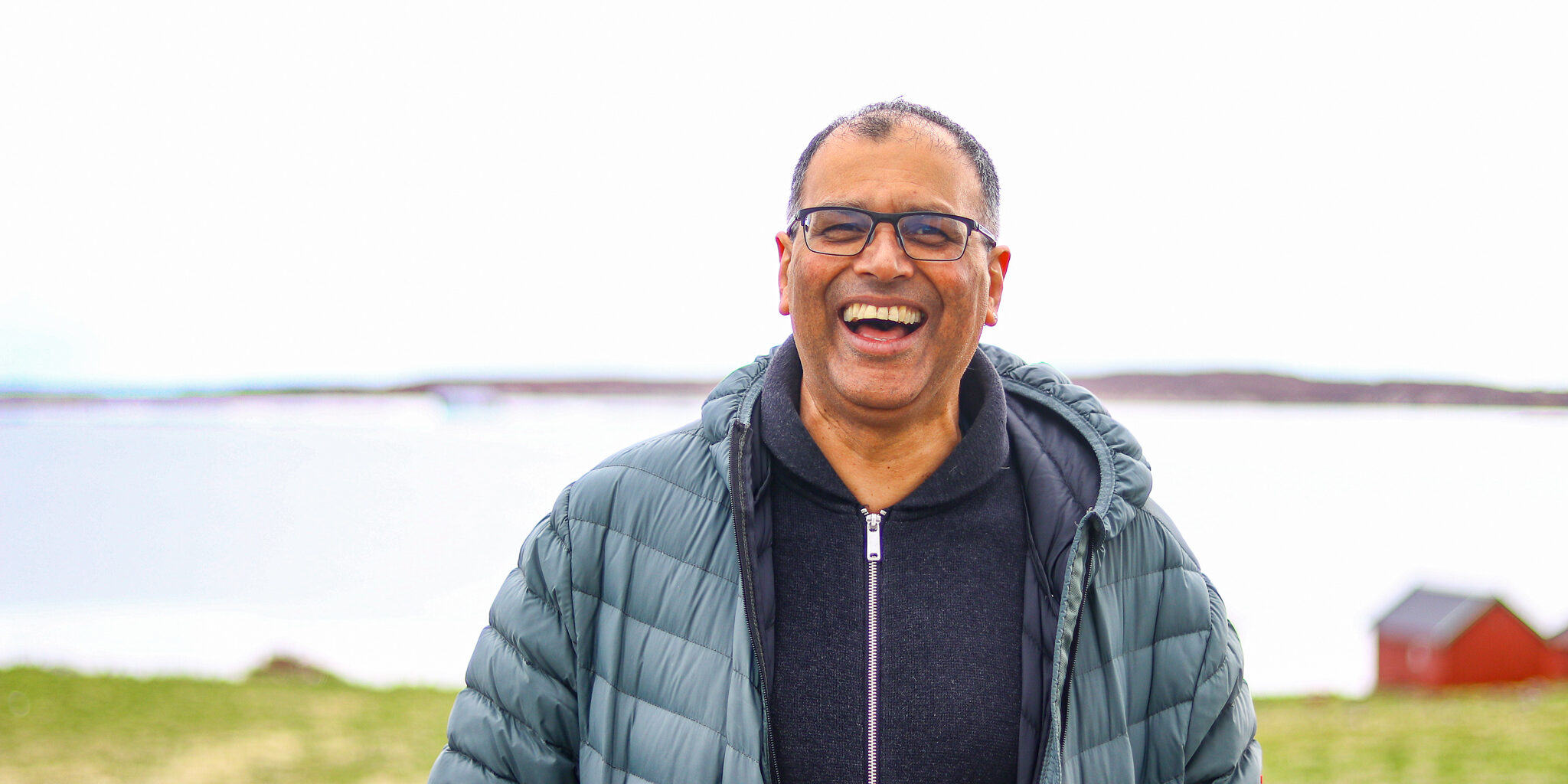Pilot: Peer Support Workers in dementia care

Pilot project in 2 Norwegian municipalities
Peer Support Workers is a good supplement to many services in the mental health and substance abuse field. In the dementia project, we are trying to find out if peer support also can be a part of the services for people with dementia. 4 persons with experience from being next of kin to someone with dementia were hired in this pilot. After a few months, the preliminary results are promising. That gives us faith peer support workers can be a part of the services for people with dementia in the future.
Preventing loneliness in a country with a lot of nature and distances
The pilot project are finding place on the Norwegian countryside, in the municipalities Frøya and Indre Fosen. In the rural areas of Norway you find a lot of beautiful nature - and often distance between every store, house and caring home. Distance can increase the risk of getting lonely. A part of this project is therefore about preventing loneliness among people with early dementia.
High level of user involvement
The peer supporters in this project are working in the "memory teams" in their respective municipality. They present themselves as "visiting friends (besøksvenn)", since the phrase Peer Support Worker may be alien to the people they want to help. The service the Peer Support Workers offer, are adjusted to the need of every user and their families. It can be everything from having a talk over a cup of coffee to be a companion at a doctor appointment. User involvement is a important part of this project.
Next of kin experience as a resource in dementia care
Some of the peer support workers in this project have experience from giving health care, but this is not a important factor. It's the experience from living close to someone with dementia that is most important. In this pilot, we wish to use the (tacit) knowledge a next of kin to someone with dementia get from living with and taking care of them. This knowledge can be difficult to transfer to other people. Project leader Roger Santokhie, says:
"It's nothing unique with professionals with next of kin experience. What's unique in this project, is that we identify the experience as valuable competence. We are trying to systemize how it can be used to rise the life quality of persons with dementia and their next of kin."

Supporting families
To be close to someone with dementia can be difficult. The roles within the family changes. Instead of being a son, daughter or spouse, you are sometimes becoming a helper. For some, it is suddenly a full time job taking care of their loved ones. In this project we are investigating if Peer Support Workers can unburden families. Giving them opportunity to maintain the relationships.
With their next of kin perspective, the Peer Support Workers may se different needs in the families they help, than rest of the health service. In this spesific project, they also have the time to help the persons with dementia with other needs - like mastering the every day tasks.
Getting to know the person behind the diagnose
In this pilot project, we ask the question "What's important to you?". The first thing the Peer Support Worker does when they are getting in contact with someone who wish to try their service, is to sit down with the family. What do they need? What kind of interests do the person with dementia have?
It can be difficult to getting to know a person for real in one meeting. Therefore they adjust the activities they offers when they get to know them better. After a while, it gets easier to suggest things to do. Again, user involvement are important in this project.
Persons with dementia also have resources
Getting older means gradually losing some functions and social roles. The Peer Support Workers in this project try to find the resources of the people they are helping. Even if your memory are fading, you still can possess a lot of resources. The Peer Support Workers can support them, and contribute to a feeling of accomplishment.
For example. Maybe you are a great baker, but need help to remember which ingredients you have added. One of the Peer Support Workers helped a lady baking to christmas. When the family came to visit, she could serve them home made cookies that tasted the same as always. That she had made herself, as always.
Smoother transition to other services
There are a lot of stigma associated with the dementia diagnose. You may get a hunch that something is not quite right, but you don't want to admit you are having trouble with your memories. And you definitely don't think you need any help from a nurse or similar. You don't want people to think you are sick.
In this project, we have discovered a Peer Support Worker can make the transition to other services smoother. Because they don't show up in uniforms, they are coming to visit you as themselves. As a friend that supports you. Not as a service you don't want to admit you need, or may need soon.
When the Peer Support Worker get to know the people using the service, they can discover challenges and help finding solutions. For example, one person had pain in the hip. The Peer Support Worker discovered this. Then she helped contact a physical therapist, and they got a program they with simple exercices they could do together. "And then we have fun while we are doing the exercices", the worker says.
Service with socio-economic benefits
We think Peer Support Workers in the dementia care can have socio-economic benefits. There are several reasons to that, like:
- Services from a Peer Support Worker can help you living home for a longer time, before moving to an institution
- The Peer Support Worker can discover issues early, like economic worries or health challenges
- They can be accompanying person to the doctors office, and help catching all the information
- They can contribute to an increased spark of life, and prevent loneliness
- They can help ensure that people get enough food and drink
- Relatives get relief, and thus avoid exhausting themselves
The project is funded by Statsforvalteren and Helsedirektoratet.

